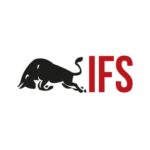
by Chau Tonnu, Analyst at the York IFS Global Market Telegraph
Hong Kong plans to reform its Hang Seng index by doubling the number of stocks listed to make room for Chinese tech firms, whilst the US, Japan, Australia, and India work together to counter China’s influence in South East Asia.
On Tuesday, China’s blue-chip CSI 300 rose by 0.7%. The CSI 300 was 0.3% lower on Friday following China’s setting of a growth target above 6% for the year, a lower figure than economists were expecting. Japan’s Nikkei 225 gained 0.6% as investors anticipate the Bank of Japan’s announcement of a new interest rate on Friday. Last week, the Hang Seng dropped by 7% from its peak on the 17th of February due to US inflation concerns regarding the $1.9 trillion stimulus package. In addition, the ‘tech stock fallout’ meant that Alibaba and Tencent, which both saw a 6% drop, also contributed to the fall in the Hang Seng. However, on Tuesday, the Index recovered by 0.7%.
However, the Hang Seng’s future looks optimistic as Hong Kong looks to reform the Index by planning to double the number of stocks listed on the stock exchange, from 52 to 80 by mid-2022, then to 100. The change is to reflect the growing number of Chinese companies in the market, particularly highly valued technology groups. The Hang Seng has underperformed relative to its peers, such as the S&P 500, where tech stocks dominate. The index reform will mean that Hong Kong financial groups and local property developers owned by the city’s tycoons will be pushed out. Only twenty Hong Kong stocks will remain, which will leave plenty of room for Chinese representation in the Hang Seng.
Meanwhile, the Quadrilateral Security Dialogue (Quad: the informal strategic alliance between the US, Japan, Australia, and India) has created a plan to provide one billion doses of the Johnson & Johnson vaccine in South East Asia to counter China’s influence in the Indo-Pacific region. Jake Sullivan, the US National Security Adviser, said the ‘Quad’ was ‘taken to a new level’. It now has plans to distribute vaccines and work on other topical issues such as emerging technologies and climate change within South East Asia. Biden has made it clear that China is the biggest foreign policy challenge to the US and that he will work with allies to ‘deal’ with Beijing. One of his aims is to make the Quad more central to US policy in the Indo Pacific region.
This article was first published in the University of York Investment and Finance Society’s Global Market Telegraph (GMT) Edition 4 in late March 2021.
Exclusive Offer: Get £100 off your Summer Internship Experience at Amplify Trading by clicking here or using our unique discount code at the checkout: MSAmplifySummer2021. Participants graduate from the course with a Diploma from the London Institute of Banking & Finance. For more information about the course, click here.

York Investment & Finance Society
The Investment and Finance Society (IFS) is the leading careers society in York, with one of the largest membership bases in the North of England. We represent the finance community at the University of York and provide financial education and hands-on experience to our members.
